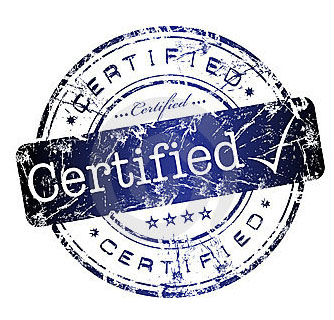
We now resume your regularly-scheduled programming...
The reason behind the radio silence is that I've gotten a new full-time position (hurrah!). Sadly, it is only temporary, but I am more than fully occupied in acclimating to my new work environment in order to 'hit the ground running' as much as possible.
Although it's still in the health sciences, this position is very different in that we're actually attached to a hospital, so doctors can come wandering over with clinical queries anytime they like. Which they have done several times already in my first week -- somehow managing to always catch me alone at the desk. Backup is only a phone call away, but I still suspect a conspiracy.
Anyway, to the topics at hand:
- (Thing 12) the utility of social media
- (Thing 13) online collaboration via Google Docs, Dropbox, wikis and more
For the first bit, I can agree that social media has put me in touch with people in the profession who I wouldn't otherwise have met -- but (you knew that was coming, right?) it still isn't at the level that I'd like to see for new members.
It makes sense that social media can't fully bridge that divide between 'professionals' and 'newbies,' since we are creatures of social habit and tend to interact within our immediate professional networks. So, to me, the groups seem to remain fairly separate and homogeneous -- the new librarians post their meetings and get-togethers; the more seasoned professionals socialize via the workplace or their groups of interest. There's exceptions in some cases, as always, but I don't know that these patterns can really be changed overall.
For the second topic -- I have had plenty of experience collaborating online, both academically and professionally, and the most challenging aspects have not been technological so much as social. Setting timelines, establishing shared expectations and goals, and being able to evaluate contributions are essential to successful group work -- and if you don't have these elements laid out at the beginning, it's even easier for people to 'fall off the radar' when you move online.
It certainly isn't impossible to do projects online -- it's necessary, now -- but it requires due diligence to the factors above in order for things to work. Plus, having at least one person on the team who's familiar with these online tools really helps for when troubleshooting becomes necessary (and it always does).
I've actually seen these two post topics -- online socialization and online collaboration -- playing out dramatically in my new position. Due to some HR hijinks, I am not yet 'in the system' -- which means that I don't have access to our library email, our shared wiki, and our blogs. People have been extremely welcoming and helpful, but I've found that I still feel cut off without these resources at hand -- I'm aware that there's another level of work and interaction going on that I am not yet engaged in.
All of which means that I'll be very happy to get my ID next week (fingers crossed!) so that I can fully participate in the workplace culture and numerous online projects at my new position.















